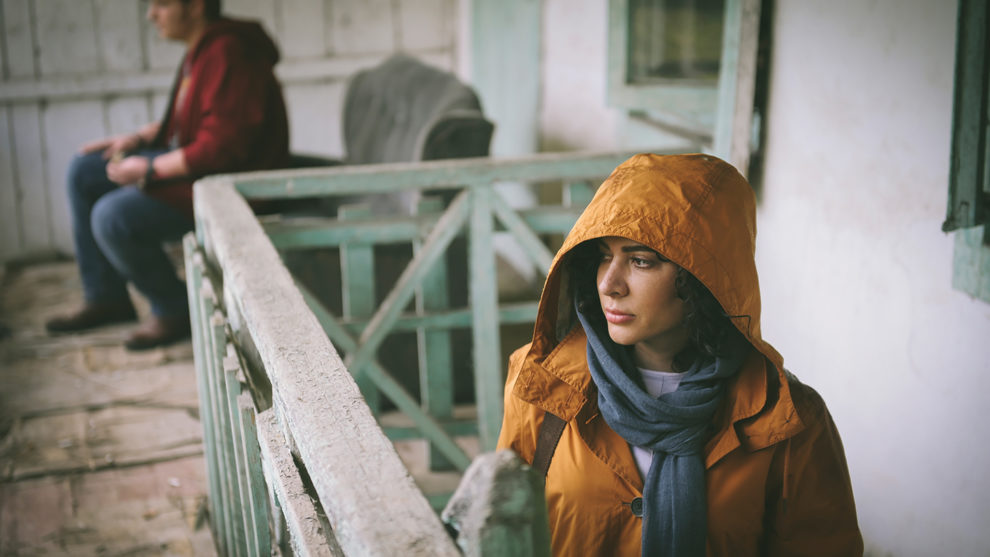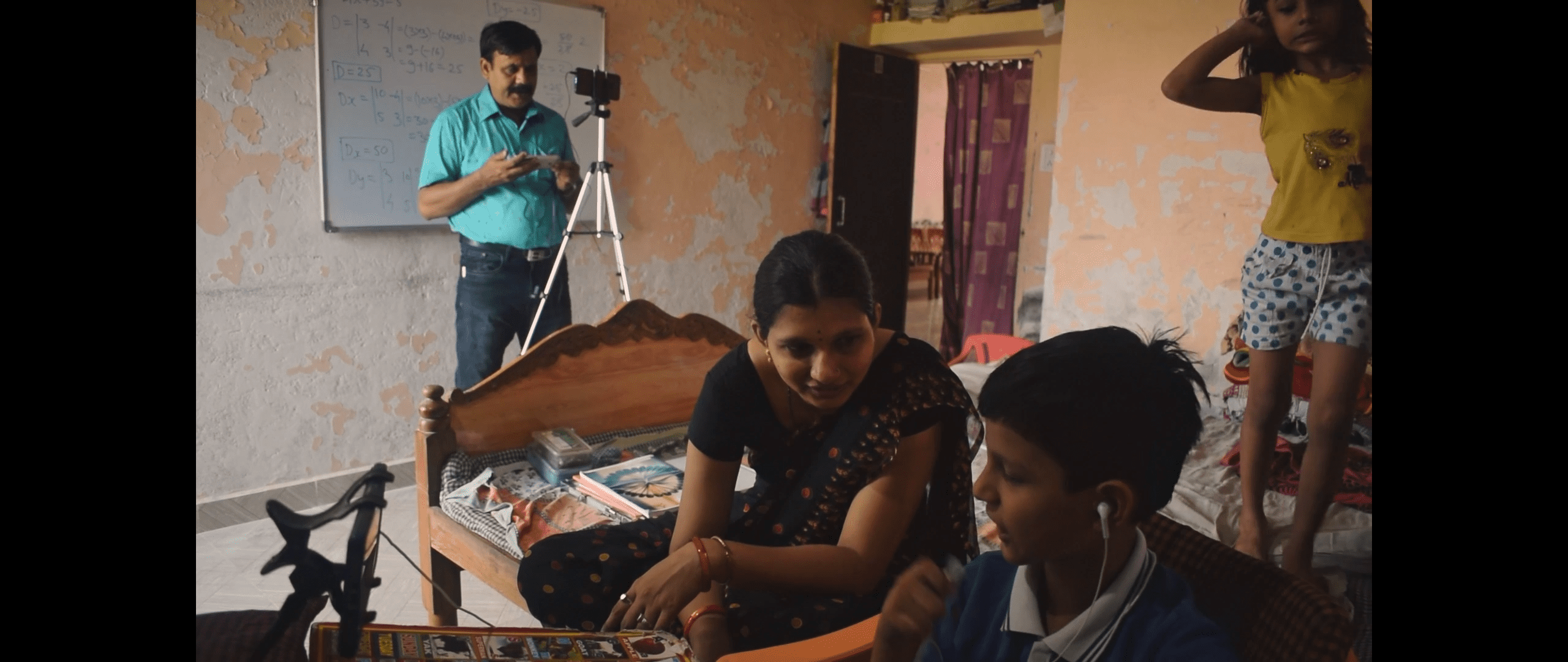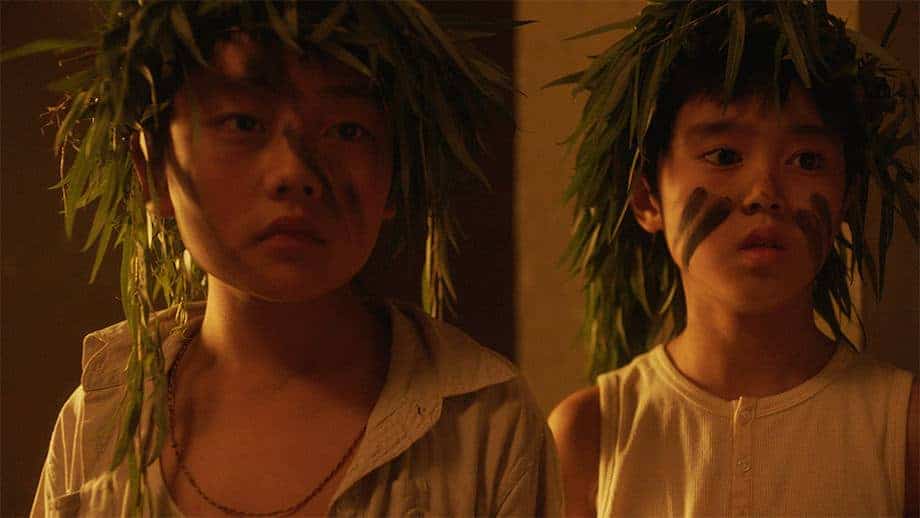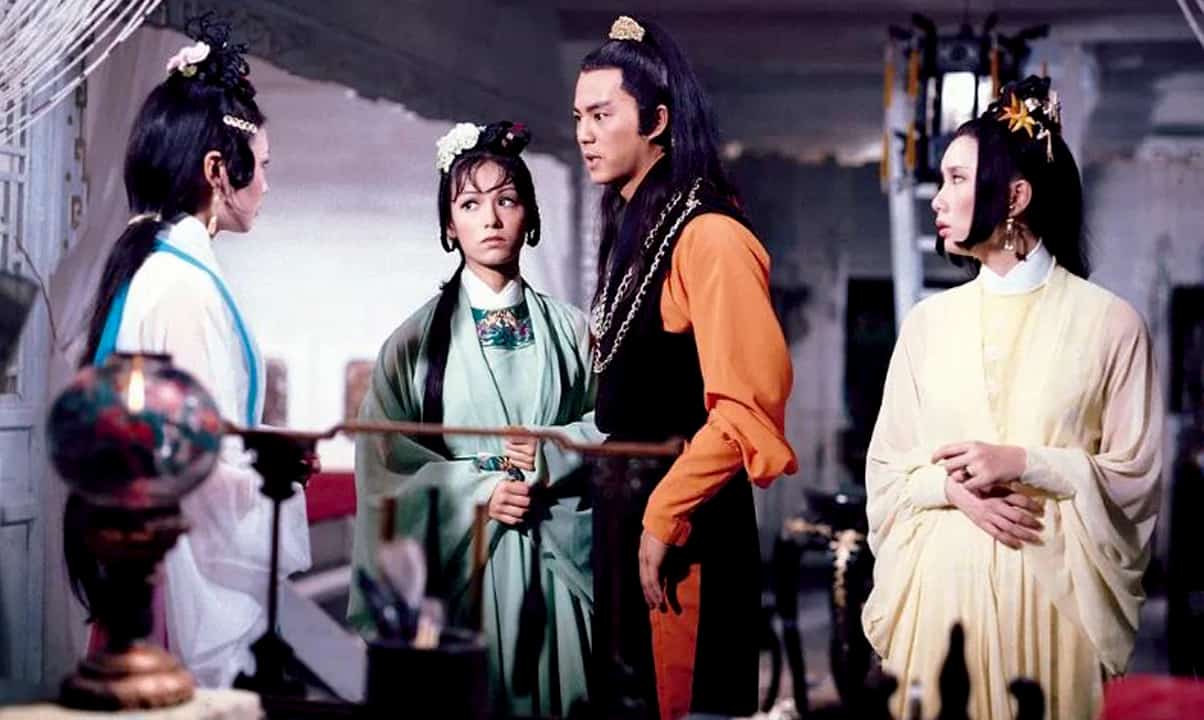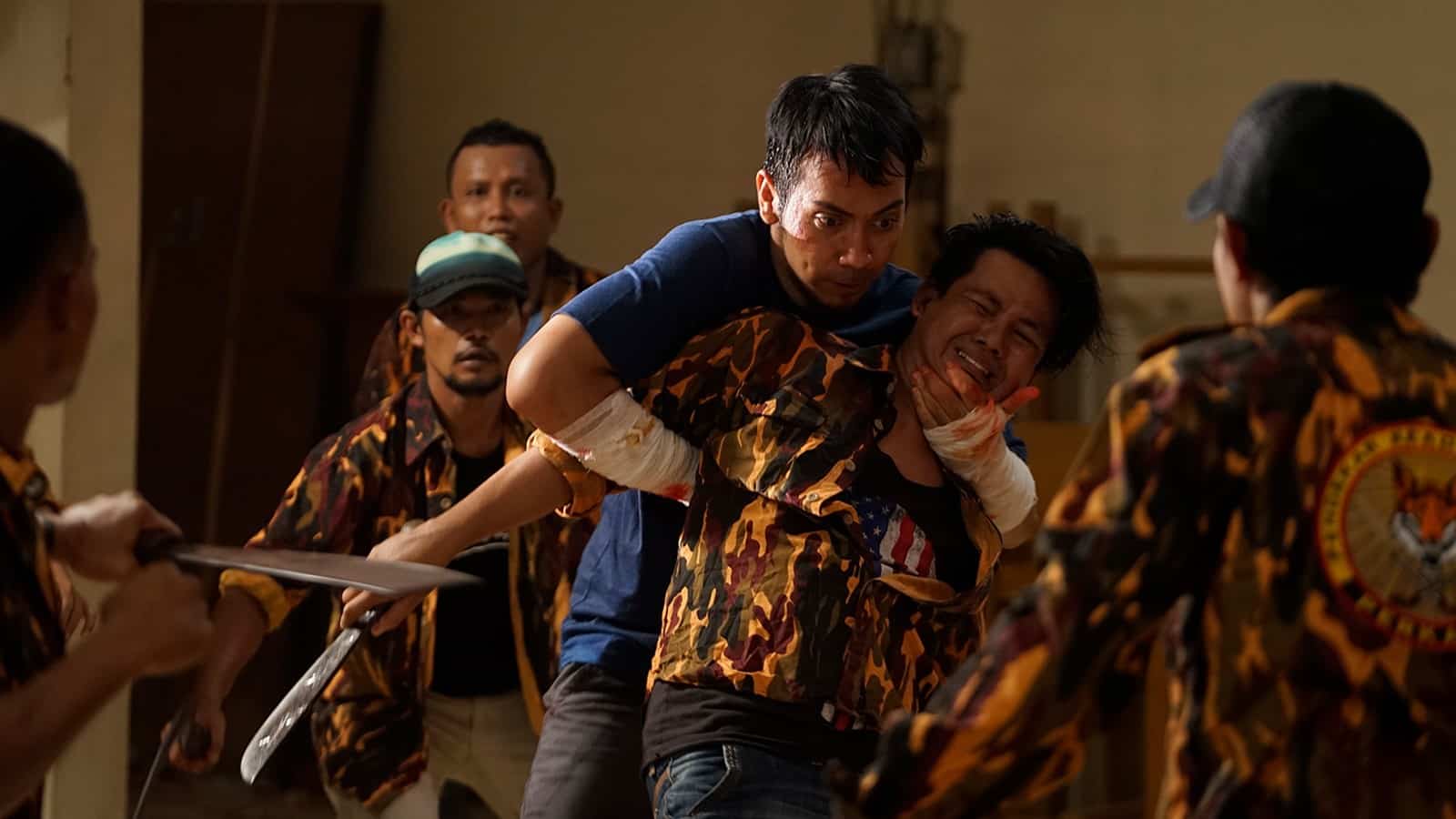There is something incredibly frustrating about being able to predict a film's final scene long before it happens. Not only that this actually is the case in Majid Barzegar's drama “The Rain Falls Where It Will”, but you'll end up impatiently waiting for the confirmation of your supernatural ability to see in the future. There's a brief moment of “ha! I knew it!” before the actual disappointment sinks in. It's not something you hoped for to happen, you just knew it would, which proves to be a pity for a very simple reason – Barzegar's fourth feature is beautiful in many ways. It is not just the lensing by the cinematographer Masud Amini Tirani that leaves a strong impression, this is also the case with the set- and costume design, both signed by Leila Naghdi Pari; her impact on the visual stength of the film is undeniable, be it in the choice of vivid garment colours to break the sinister atmosphere, or in details put in the spaces of vital importance to the film's narrative – hospital rooms, dinners and residential houses.
Only the Winds is screening at International Film Festival Rotterdam

The story follows a young nurse's (Sara, played by Nazanin Ahmadi) short path of transformation from a death angel to a defender of life, in a drama that questions human relationships to mortality and the impact fear and pain have on our lives. By walking that line, Barzegar also examines the manifold nature of empathy and the treacherous feeling of knowing the right answers. Do we have the capacity – not only the moral, but also psychological, to decide who has the right to live and who deserves to die? Do we have the right to deny death to those who suffer excruciating pains?
Sometimes weak in its ability to bring the message across – Sara's suden realization that life is precious no matter what, the plot makes a couple of stops at places where it maybe shouldn't have ventured to. Those (mostly emotional) excursions into the dangerous theritory of generalisations prove to be the film's weakest point, not always necessarilly causing the reaction they were after. Culturally seen, some behavioral patterns in patients may prove too radical for the western audience, since they were clearly not written to provoke, but to cause empathy. When Sara patiently has to put up with insults and threats such as: “I'd beat a shit out of you if I had legs”, once that border is crossed, there is no sympathy left for the person in a hospital bed, despite of their bitter destiny.

Due to Ahmadi's strong performance, the film is almost unharmed by the weaknesses in the script and such that were most probably caused by editing; “The Rain Falls Where it Will” was shown in its shorter version at IFFR, where we caught up with it.
Although occupying a small role – Alireza Sanifar (“Ballad of the White Cow”, “Up There”) shines in his portrayal of a loving husband anxious about his wife's strong reactions on her terminally ill patients. It's a straightforward, memorable performance which Sanifar delivers with a rotuine ease, but the actual star of the film is the newcomer Nazanin Ahmadi, awarded with Crystal Simorgh as Best Actress in Leading Role at Farj International film festival in 2020 for the role of Sara.
Once the story changes its geographical space, and more side characters get introduced, that magic starts weakening. The switch happens when the head of the clinic summons Sara in his office to ask her a special favor. His good friend – a rich and influential man by the name of Samaei has only a week to live, and the family needs a nurse to take care of him during that brief time. Mr. Samael wished to die in his now abandoned village, but he isn't really capable of saying what he wants; he lies brain-dead in coma, with machines monitoring his process. Much to dissmay of her husband, Sara decides to accept the job.
Less is more proves yet again, which is why the story works much better in the film's first half when the accent is almost completely on Sara's fixation on patients' suffering. Ahmadi carries the plot more through her remarkable presence (the attentive look, the facial expression, the “broken” posture when in emotional pain) than through dialogues themselves until the very end, even though this comes across more as a weakness once the stage gets crowded. The full house, which is a spacious villa filled with children and their spouses – all waiting for something to happen, presents only one interestingly developed side character who can play on the eye level with the lead: grandson (Arshia Nikbin). His quirky personality is the only one standing in contrast with the melancholic, dark tones.
What stays unclear is what triggered Sara's sudden change of mind. A hint at a supernatural is given, albeit rather vaguely making this possibility disappear faster than it appeared. Whatever that answer might be, “The Rain Falls Where It Will” is a recommendation. Simply embrace its flaws.


